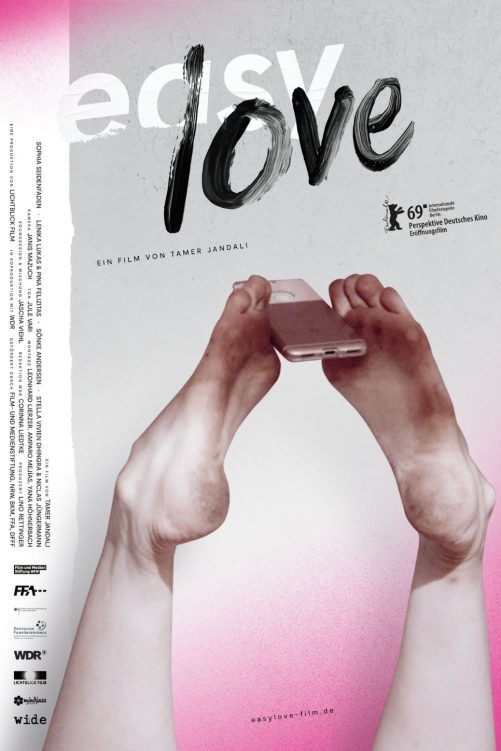Easy Love

Tamer Jandali’s Easy Love plays out largely like a “normal” film. It appears that the actors interpret the roles assigned to them, and they do so largely successfully. This is not the reality of Easy Love, however; once one is aware of this, the entire process of viewing is shifted and one feels perhaps more like an active observer rather than a passive viewer, waiting to be entertained. The actors “play” themselves, they are essential to the construction of the narrative. What is so fascinating about the film is that it relies on their reality beyond the limits of the camera’s framing of it.
Following the lives of seven men and women between the ages of 25 and 45, Easy Love archives the details of their romantic and sexual misadventures within the context of their individual lives. Set in Cologne, the narratives are separated but proximate, adjacent even, and yet never do they overlap. That would be tacky, that would imbalance the carefully constructed artifice/reality dynamic of the picture. Although individualised, each narrative echoes through the other relationships and interactions that occur in the film. We see that isolated incidents are all but isolated; rather, they are the result of heteronormative socialisation, or the unquestioning acceptance of monogamy, amongst other things.
Each narrative bubble is compelling. We see a couple navigate their open relationship, another pair engaging in a queer relationship whilst living in a tiny space, a temporarily homeless man using sex to ensure a bed for the night, and a young woman who takes up sex work much to the disappointment of her second wave mother.
Although these elements are all interesting, Easy Love at times has its limitations; queer elements of the movie seem underrepresented and it sometimes fails to draw attention to the privilege of those whose stories it shows. Making general and holistic observations on social, sexual and gendered dynamics is therefore impossible, even if the film encourages its audience to do so.
The explicit focus on romance and sexuality makes the spectator’s contemplation of the picture’s “reality” all the more charged, exploiting what is often an audience’s innocently prurient fascination with the semantics of sex scenes. Jandali makes the viewer think carefully about the artificial separation of fact and fiction, challenging what could otherwise be a peaceful viewing experience, and the audience finds themselves questioning the legitimacy of each interaction in the film.
Fenja Akinde-Hummel
Easy Love does not have a UK release date yet.
Read more reviews from our Berlin Film Festival 2019 coverage here.
For further information about the event visit the Berlin Film Festival website here.

























Facebook
Twitter
Instagram
YouTube
RSS